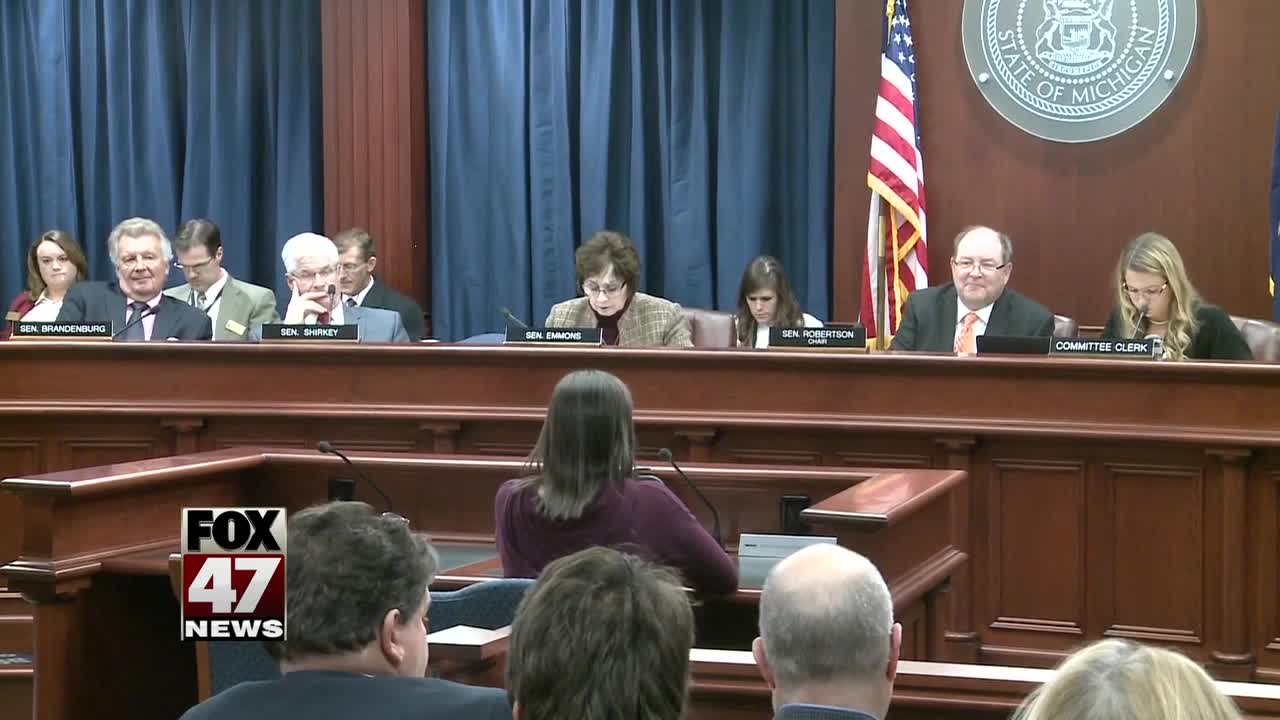Republicans who control Michigan's Legislature voted Wednesday to advance a measure that strips campaign-finance oversight power from the Democratic secretary of state-elect, and they moved to give lawmakers authority to stand up for GOP-backed laws if they think incoming the Democratic governor and attorney general are not adequately defending the state's interests.
The lame-duck moves followed within hours of similar efforts in Wisconsin , where lawmakers voted earlier Wednesday to shift clout to the Republican-controlled Legislature and weaken the Democrat replacing the GOP governor.
Michigan Democrats in January will jointly hold the governor, attorney general and secretary offices for the first time in 28 years, but the Legislature will continue to be controlled by Republicans.
A day after GOP lawmakers finalized an unprecedented maneuver to gut minimum wage and paid sick leave laws , a Senate panel passed legislation that would create the Fair Political Practices Commission to enforce the campaign-finance law rather than Secretary of State-elect Jocelyn Benson, who ran in part on a pledge to advocate for election transparency.
Democrats called the bill, which could clear the full Senate on Thursday, a blatant power grab that would fly in the face of voters.
"At no point did voters say they wanted the rules manipulated. At no point did they say they wanted bills rushed through a hasty lame-duck session," said Patrick Schuh, state director for the liberal group America Votes. He questioned the timing, saying such a commission was not proposed until a Democrat is on the verge of leading the secretary of state office for the first time in two-dozen years.
Republicans defended the legislation, saying the six-member panel of three Democrats and three Republicans would initially be appointed by Democratic Gov.-elect Gretchen Whitmer. Eric Doster, a former long-time lawyer for the state GOP, testified that the commission would operate similarly to those in other states and said "now the time is right."
Other critics of the bill, however, contended that the commission would be ineffectual, saying its members would deadlock and be accountable to political parties that would submit a list of possible appointees to the governor.
Also Wednesday, the House voted 58-50 for legislation that would empower the Legislature, House or Senate to intervene in any suit at any stage, a right already granted to the attorney general. A bill that won Senate approval over Democrats' objections would influence how Benson implements a new voter-approved constitutional amendment that establishes an independent redistricting commission to draw congressional and legislative maps instead of the partisan Legislature.
The former measure is seen as a maneuver to ensure that Republicans could support laws if Democratic Gov.-elect Gretchen Whitmer and Democratic Attorney General-elect Nessel are lukewarm about GOP-passed measures and drop appeals in cases the state loses.
Nessel, for example, has said she probably will not defend a law allowing faith-based groups to refuse to serve same-sex couples who want to adopt children.
Republicans disputed criticism that the legislation would undermine the role of the attorney general. The sponsor, Rep. Rob VerHeulen of Walker, said it would simply let the Legislature intervene without the court approval that it currently needs, regardless of which party is in power.
"We're seeing more and more public policy issues being addressed in the courts, rather than solely in the legislative branch," he said. "This in an institutional bill designed to ensure that the legislative branch has a voice."
Democrats countered that the legislation is an unconstitutional overreach.
"The Legislature makes the laws, the executive branch enforces the laws and the judicial branch interprets the laws," said Rep. Robert Wittenberg of Huntington Woods. "Let's be clear: This legislation would have never been introduced, much less put on the agenda, had we seen different results in the top-of-the-ticket elections less than a month ago."
Democrats also criticized the bill that would prescribe how Benson randomly selects the four Democrats, four Republicans and five independents to sit on the redistricting panel. They said the anti-gerrymandering ballot initiative approved last month is self-executing, and the legislation is not supported by organizers of the ballot drive nor people who voted for it.
"The incoming secretary of state was elected to preside over election matters," said Senate Minority Leader Jim Ananich of Flint. "She's perfectly capable of figuring out who is a Democrat and who is a Republican without the help of this lame-duck Legislature."
Yet the GOP sponsor, Sen. Phil Pavlov of St. Clair, said the legislation would not in "any way" affect Proposal 2 but rather follow its goal of partisan "evenness and equity" by restricting people affiliated with a political party from providing legal and accounting services to the commission.



